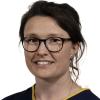Brown Pigmented Birthmarks
Brown birthmarks can be light or dark brown in colour and occur anywhere on the body. They are sometimes present at birth and sometimes appear during the first year of life. Some brown birthmarks are flat and some develop a thickened surface and become hairy as the child gets older. Brown birthmarks are usually due to an increased number of pigment producing cells in the skin.
Treatment for brown birthmarks depends on the size and type of the birthmark and the area of the body that is affected. Some birthmarks are suitable for surgical excision, which will completely remove the birthmark but will leave a scar. If you are interested in surgical treatment you will need to see a plastic surgeon. Your GP may be able to advise you further.
Some birthmarks are suitable for laser treatment to fade the brown pigment.
We use the Qswitched Nd:YAG laser, which can result in good fading of some brown birthmarks and rarely leaves a scar. It is particularly useful for flat brown birthmarks that are not suitable for surgical excision. Multiple treatments are required to get as much fading as possible and results are variable.
An initial consultation is always required to assess your birthmark and discuss your specific needs.
There is no routine NHS funding for laser treatment but patients with large disfiguring facial birthmarks can be considered for NHS funding. Please discuss this with your GP who may be able to apply to the Exceptional Funding Panel on your behalf. A referral from your GP or hospital specialist, with funding approval, is required for all NHS patients.
If you are not eligible for NHS funding you can self-fund your laser treatment at Bristol Laser Centre. An initial consultation costs £120. Brown birthmark treatment sessions start from £145 per session.
Contact Bristol Laser Centre
If you are already attending the Laser Centre, please phone 0117 414 1212.
If you are a new patient, would like to get on our waiting list, or have any queries please use our Contact form or phone us on 0117 414 1212.







